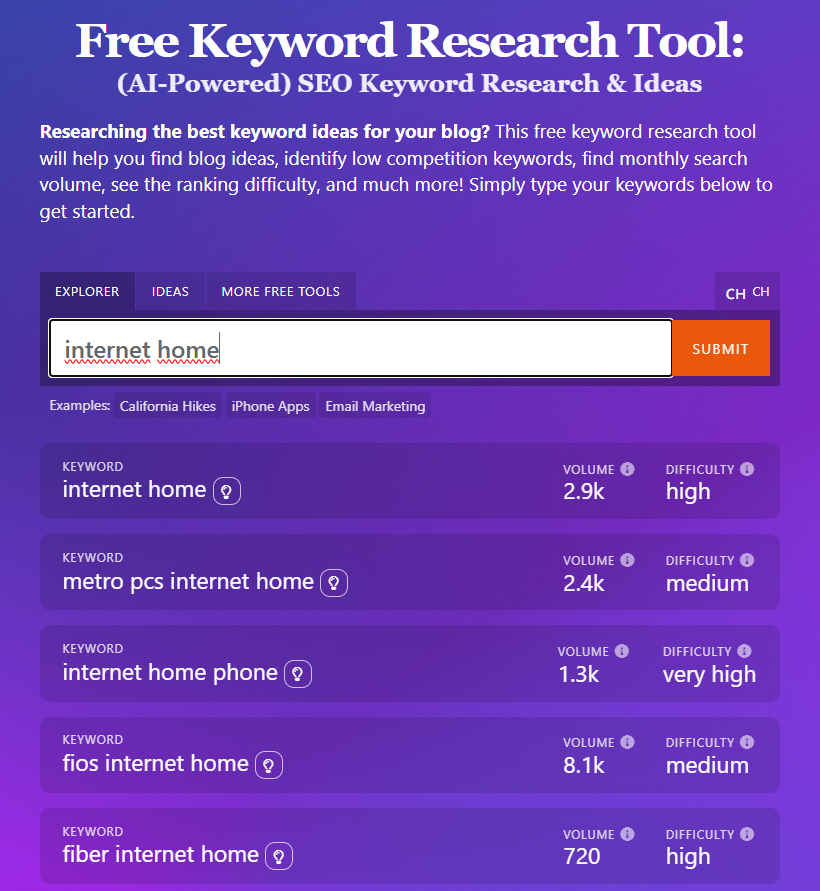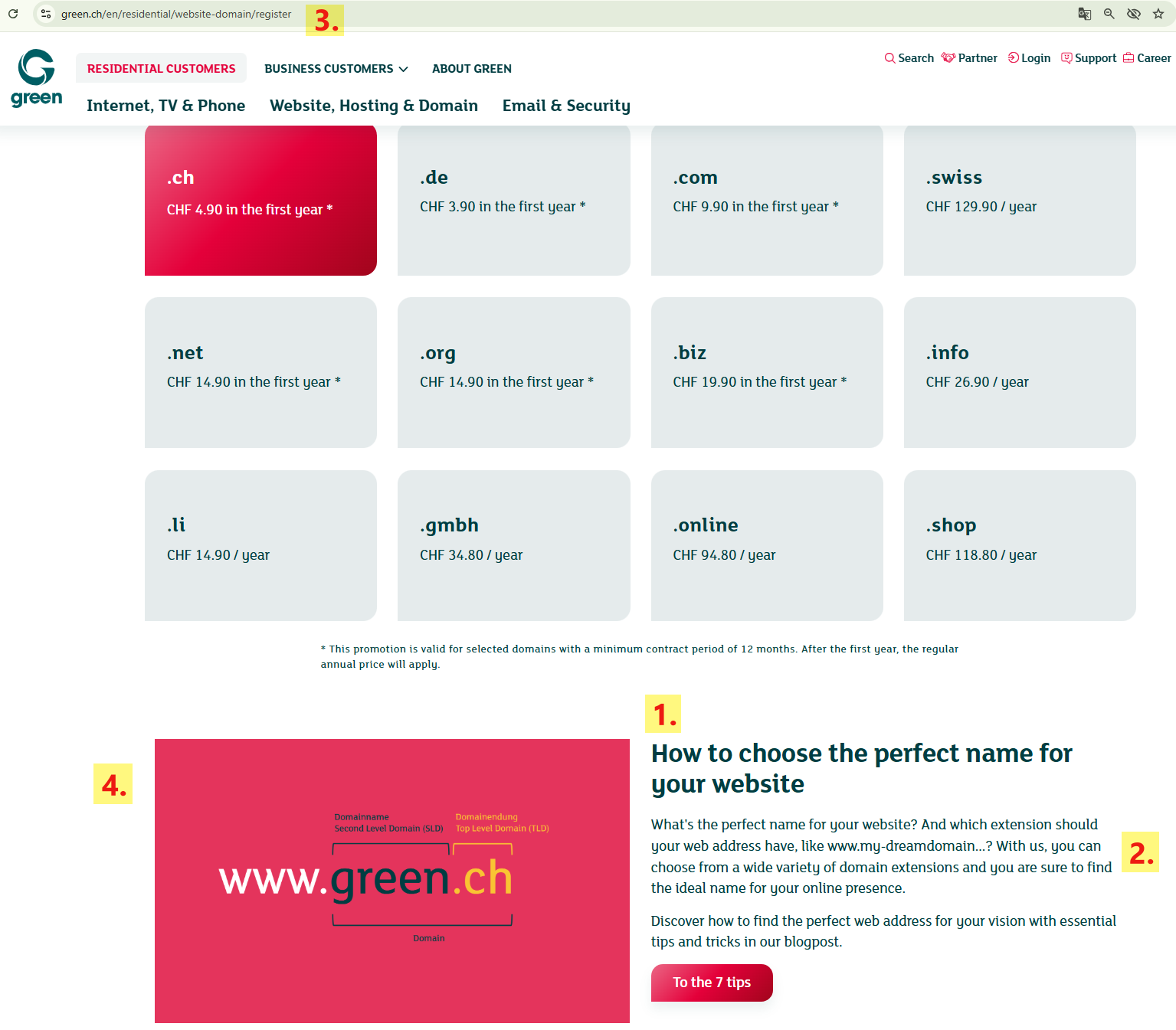
SEO: boost your website's success with the right keywords
What are keywords?
Keywords are words or phrases you type into a search engine when looking for something specific. These search terms are usually intuitive. For example, if you are searching for a new internet provider, you might type "home internet". Google & Co. rank results based on relevance, aiming to show the most useful pages first.
Why are keywords important?
Keywords are a crucial part of SEO. They tell Google and other search engines what your website is about. Search engines scan your website for relevant terms and store this information. If someone searches for a term that appears prominentliy on your site, your ranking improves. Well-chosen and strategically placed keywords increase your chances of appearing higher in search results.
Want to learn more about search engine rankings?
Check out our blog post: "How can my website be found better on the internet?".

Create your responsive website now
With web hosting from Green, you get access to an included website builder. You can access over 200 design templates and free images in one go. They are optimised for mobile phones and tablets so elements can be easily adjusted, repositioned and even hidden in the responsive display. Build your own responsive website with ease.
How to choose the right keywords?
Selecting the right keywords is essential for SEO and the success of your website. Ideally, you should choose keywords that:
- are highly relevant to your website’s content,
- have a high search volume, meaning they are frequently searched,
- are promoted by relatively few competitors.

4 Tips for finding the best keywords
1. Use your audience's language:
Use tools like the free Google Keywoord Planner or the paid service Sistrix to discover how people search for your products or services.
2. Avoid highly competitive terms:
Instead of competing with every competitor, focus on frequently searched, less competitive terms.
3. Leverage long-tail keywords:
These are phrases with three or more words. They are more specific than single keywords and often face less competition. For example, instead of "home internet", try "fiber-optic home internet in Zurich".
4. Mix it up:
Using synonyms and related phrases increases your reach and your chances of appearing at the top of search results. For example, instead of always using "home internet", you can incorporate secondary keywords like "residential internet", "fixed-line internet", "high-speed internet for remote work", or "reliable internet for gaming".
Prioritizing keywords
Prioritize your keywords based on their importance. Identify the most relevant keyword for your website – this is your primary keyword. Make sure to place it strategically throughout your content for maximum impact.

Why is Green the right partner for your website?
No matter whether you want to present your company or your club. With Green you get everything for the creation of your website from a single source: the right internet address at a special price starting at 3.90 Swiss francs, the right web hosting package including email addresses and website builder. Of course, our customer-friendly Swiss support will be happy to assist you - both before and after the purchase. Find out more about the current special offers here:
Where should keywords be placed on your website?
Once you have selected and organized the right keywords, it's crucial to integrate them strategically into your website. Place your primary and secondary keywords in the following key areas:
1. Headings & titles:
Google, Bing & Co. prioritize headings and titles. Use your main keyword in titles to clearly define the page’s content.
2. Body text:
Integrate your main keyword and relevant synonyms as naturally as possible throughout your website’s content. Avoid keyword stuffing – overusing them can lead to a lower ranking.
3. Links (URLs):
Placing the main keyword in the URL helps search engines understand its relevance.
4. Image names & alt tags:
Name all website images appropriately and include relevant keywords to improve search visibility.

5. Title tag:
Your title tag (the blue clickable heading in search results) should include your most important keyword.
6. Meta description:
The meta description is the short text displayed below the title tag in search results. It should contain your main keyword and encourage users to click on your page.

Image on the left: Example of a title tag (blue) and the meta description below it.
The key takeaways
Keywords are essential for SEO and play a crucial role in determining how well your website ranks in search results. With the right selection and thoughtful placement, you can significantly improve your online visibility.


![[Translate to Englisch:] Responsive Website: damit ihr Internetauftritt auf allen Geräten immer optimal aussieht Tisch mit unterschiedlichen digitalen Geräten von oben](/fileadmin/_processed_/5/7/csm_Blog-Responsive-Website1_d4a0163a2b.jpeg)